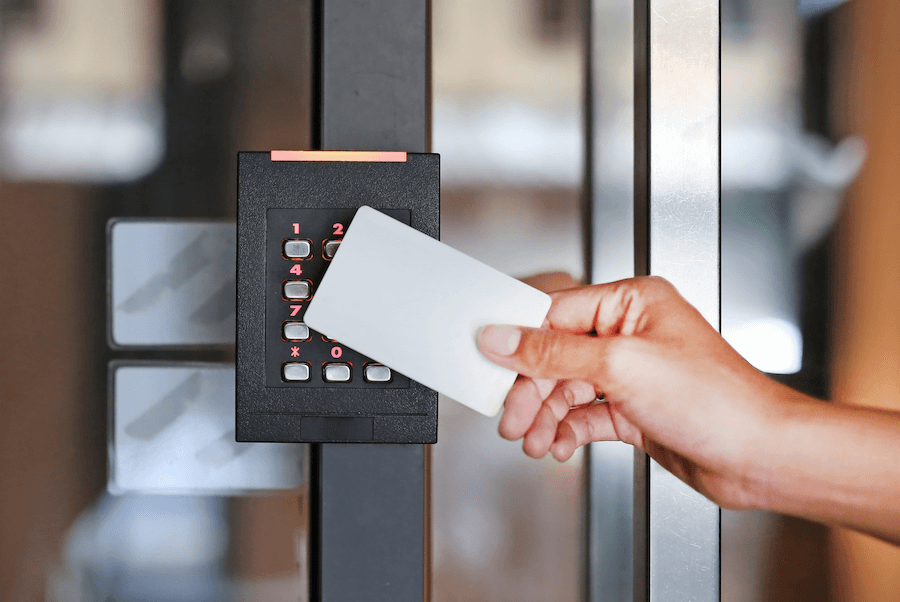Hybrid working doesn’t just pose a cyber security threat. It poses a physical security threat, too.
Here’s how to stay protected.
In 2022, hybrid working has become the norm – for SMEs and large organisations alike. Most employees prefer a mix of working between the office and their homes, and employers don’t mind as long as the work gets done.
With hybrid working now a key deciding factor for job hunters looking for their ideal role, it clearly has its benefits. However, it also comes with a few drawbacks, especially with regard to security.
The cyber security concerns of hybrid working have been covered in a wealth of detail online. We know some cyber-attackers solely target remote workers, employees may be using unsecured devices to access company data, and staff might not have updated their computer system’s firmware.
However, hybrid working poses real physical security concerns, too.
If staff members are not always in the office, they might misplace their access cards. This causes admin issues as the receptionist will have to take time away from their other tasks to constantly let people into the building and issue temporary cards.
The biggest security concern lies in the fact that unauthorised people who don’t work for the company, and even criminals, may use this to their advantage. They could pretend they work for the company and have lost their card. As a common occurrence, the receptionist might believe them and grant them access, perhaps even issuing them with a temporary card.
Once they’re allowed into the building, these criminals can be harmful to the company, staff and even sensitive data.
However, Mobile Access control specialists Digital ID have a practical, secure solution that resolves this issue.
Mobile access control allows users to enter secured areas with their smartphone, tablet or wearable device, such as a smart watch.
In the digital age, most adults carry their phones with them everywhere they go. People are much less likely to forget or misplace their phones than their access cards. Therefore, this solves a large part of the issues, lowering the likelihood of employees not carrying their credentials with them.
With mobile access, credentials are provided remotely and are sent straight to the mobile device. Therefore, as long as a person has their phone with them, they will be able to enter the building. This means a criminal would be unable to pretend they’re an employee and that they’ve lost their card at home.
And if they pretend they can’t access the building as they’ve lost their phone, a security administrator can easily ask for their details to find them on the management system. The administrator will also need the person’s details to block credentials from their misplaced phone before granting any other access permissions.
The person will be unable to provide their details, thus being unable to enter the building and cause any harm.
Mobile access clearly resolves the physical security concerns of the hybrid work world. And that’s not the only advantage it carries. Other benefits of mobile access include encrypted credentials that cannot be duplicated, improved user convenience and strengthened sustainability efforts.







